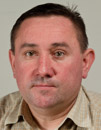Audio and Computers
Lecturers
Course Description
Study Programmes
University undergraduate
General Competencies
Good understanding of the problems and solutions of sound recordings and procesing, with applications to computers. Theoretical and practical knowledge about methods and techniques in measuring of sound, with applications to computers. Basic knowledge about methods and techniques in sound processing.
Learning Outcomes
- explain the principle of A/D and D/A conversion
- differentiate media and formats for sharing audio content
- explain the features of sound cards
- apply recording, editing and sound processing with computer
- analyze the sound with a computer
- describe the computer control of musical instruments
- choose a good way of audio content archiving
- use a computer for electroacoustic measurements
Forms of Teaching
Lectures are held in two cycles, 3 hours per week. After each cycle assessment is carried out.
ExamsContinuous assessment is carried out through mid-term exams and final exams. Assessment on the examinations are carried out according to schedule.
Laboratory WorkThree laboratory exercises are provided, they are graded, and take place under the supervision of an assistant.
ExperimentsDemonstration of some phenomena that are topics at a lecture
Experimental ExercisesMore complex demonstration of some phenomena that are topics at a lecture
ConsultationsConsultations take place according to agreement with the teacher
SeminarsIndividual work for selected topic from the area of the whole course
Grading Method
| Continuous Assessment | Exam | |||||
|---|---|---|---|---|---|---|
| Type | Threshold | Percent of Grade | Threshold | Percent of Grade | ||
| Laboratory Exercises | 0 % | 15 % | 0 % | 15 % | ||
| Seminar/Project | 0 % | 15 % | 0 % | 15 % | ||
| Mid Term Exam: Written | 0 % | 20 % | 0 % | |||
| Final Exam: Written | 0 % | 20 % | ||||
| Final Exam: Oral | 30 % | |||||
| Exam: Written | 0 % | 40 % | ||||
| Exam: Oral | 30 % | |||||
Week by Week Schedule
- Introduction lecture about sound
- A/D i D/A conversion
- Methods and formats for audio content sharing
- Computer and digital audio workstation
- A/D and D/A conversion - Matlab - presentation and demonstration
- Audio coding techniques
- Sound analysis and sound synthesis
- Mid-term exam
- Sound card and measuring on sound cards
- Audio streaming
- VoIP - Internet Phone
- Home multimedia systems
- Audio content archive
- Computer-controlled electroacoustic measurements
- Final exam


 Pristupačnost
Pristupačnost